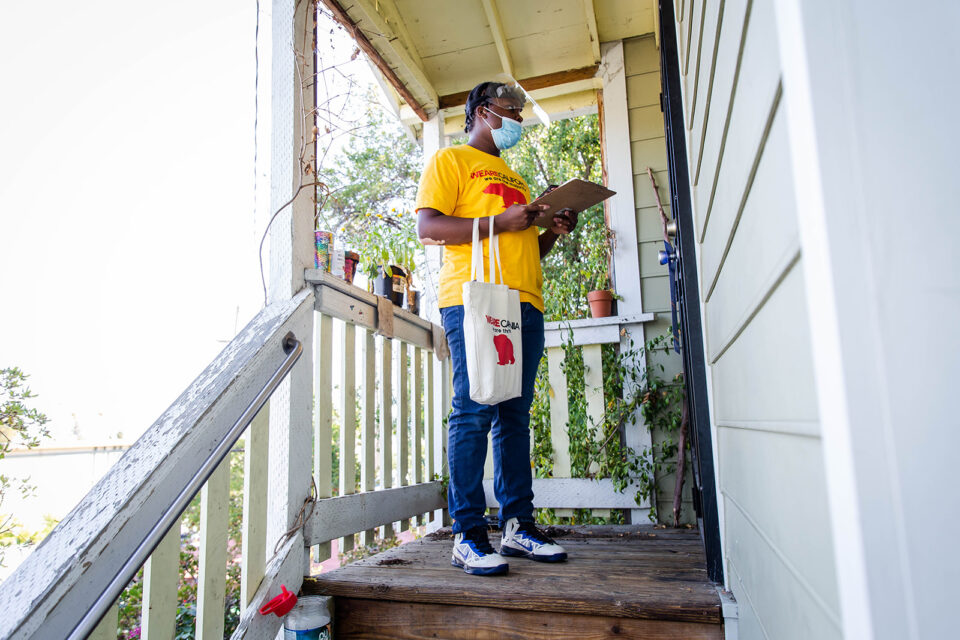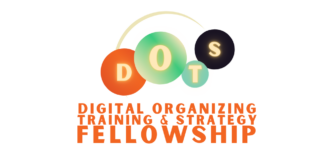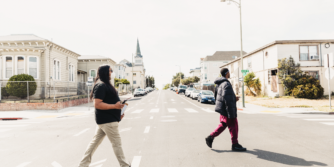By Stella Ramos
No matter our background, we deserve to participate in our democracy and vote in a way we can trust, with transparency and understanding about who we’re voting for. Despite this, corporate interests continue to wedge their way between voters and representatives, pouring billions of dollars into our local, state, and national elections and keeping us in the dark about where that money is coming from and how it’s being used.
The 2020 election saw more corporate financing than any other election in U.S. history, but that money wasn’t reserved for just the presidential race — millions showed up in both California and local Bay Area races. This kind of money unfairly shapes our elections, distracting and misleading voters and skewing election outcomes to protect corporate interests, instead of the needs of our communities.
Proposition 22 in California passed after Uber, Lyft, DoorDash, and Instacart bankrolled the campaign, which raised more than $189 million, compared to the $15 million No on 22 campaign. The combined $204 million spending total for the Proposition 22 race was the most ever spent on a California measure in history. Prop 22 reclassified workers at gig companies as contractors, without access to employee rights such as minimum wage, unemployment benefits, health insurance and collective bargaining. The proposition, and deeply inflated and unfair campaign, exploited workers and put more money and power back into the hands of wealthy corporations.

Lyft’s exorbitant spending on campaigns didn’t end at the state level. The corporation jeopardized our communities’ best interests in Oakland by spending $100,000 to unseat Oakland Councilmember Rebecca Kaplan. Lyft’s donation to a local PAC accounted for 90% of the total funds raised by the committee. Councilmember Kaplan has sought to place a tax on Uber and Lyft rides since 2017. She is also an outspoken organizer for workers’ rights. Kaplan opposed Prop 22 and has a strong record on housing and tenants’ rights — all reasons Lyft sought to unseat her. Despite Lyft’s attempts to buy her opponent a seat, and thanks to the organizing and community support that helped to defend her, Kaplan won in the 2020 election.
In the South Bay, San Jose City Council races had shocking amounts of campaign money come in. Progressive disruptors David Cohen and Jake Tonkel had a combined $1.8 million against them, including from the Silicon Valley Organization and California Apartment Association. The San Jose Police Officers Association also spent over $200,000 on anti-Tonkel ads alleging that he “hates cops.” The ads against Tonkel grew racially charged, and after a slate of ads were rightfully critiqued for being racist and violent, the SVO PAC funding the ads was dismantled.
Across the Bay, private and corporate money funneled its ways into our elections — largely targeting progressive leaders who were challenging conserative representatives. Wealthy donors raised over $300,000 to spend on OUSD races, compared with closer to $5,000 in recent years. Meanwhile, Districts 1 and 11 in San Francisco posed challenges for progressive candidates Connie Chan and John Avalos respectively, as their opponents took seemingly endless donations from the real estate industry. Taking the bold step of opposing corporate and private financing of elections put progressive candidates like Chan and Avalos at a great disadvantage financially.

Elections should be about forging connections with community, meaningful representation, and progressive policy platforms — not the struggle to raise enough money to defeat billionaire industries. Elections shouldn’t be about corporate interests or cash, they should be about constituents: the people we pass on the street and see in the store, our friends, our families. As long as corporations can afford to get away with pouring money into our elections to protect their interests, they will. To counteract this dangerous, exploitative, and worsening trend, we need campaign finance reform that sets limits on corporate contributions, requires transparent budgets and ads, and promotes public financing.
Seattle’s 99% wrestled with this issue a few years ago. Local political campaigns were being financed by a wealthy fraction — a literal 1% — of voters. Instead of accepting an election process that catered to corporations and the rich, the people of Seattle decided to breathe life into their democracy. They provided publicly funded democracy tokens to all, allowing people from all walks of life to donate to the candidates that would best represent them. The result? The total number of donors to local races tripled in 2017, with over 15,000 residents using at least one token. The Seattle City Council is now majority people of color, and women have a supermajority.
Washington, D.C.’s new public financing program is also changing what local politics looks like in our nation’s capital. More people ran for office and donated to campaigns – specifically, more first-time candidates ran and the program significantly boosted the number of small donations.
There’s a lesson for us in these victories – in fact, we’re planning something exciting inspired by Seattle’s model here in the Bay Area. We have the power to create a democratic process that works for all of us. And we all deserve an equal say in who represents us and the rules that govern us, no matter who we are, what we look like, or what’s in our wallets. Sign up for updates to stay tuned!




